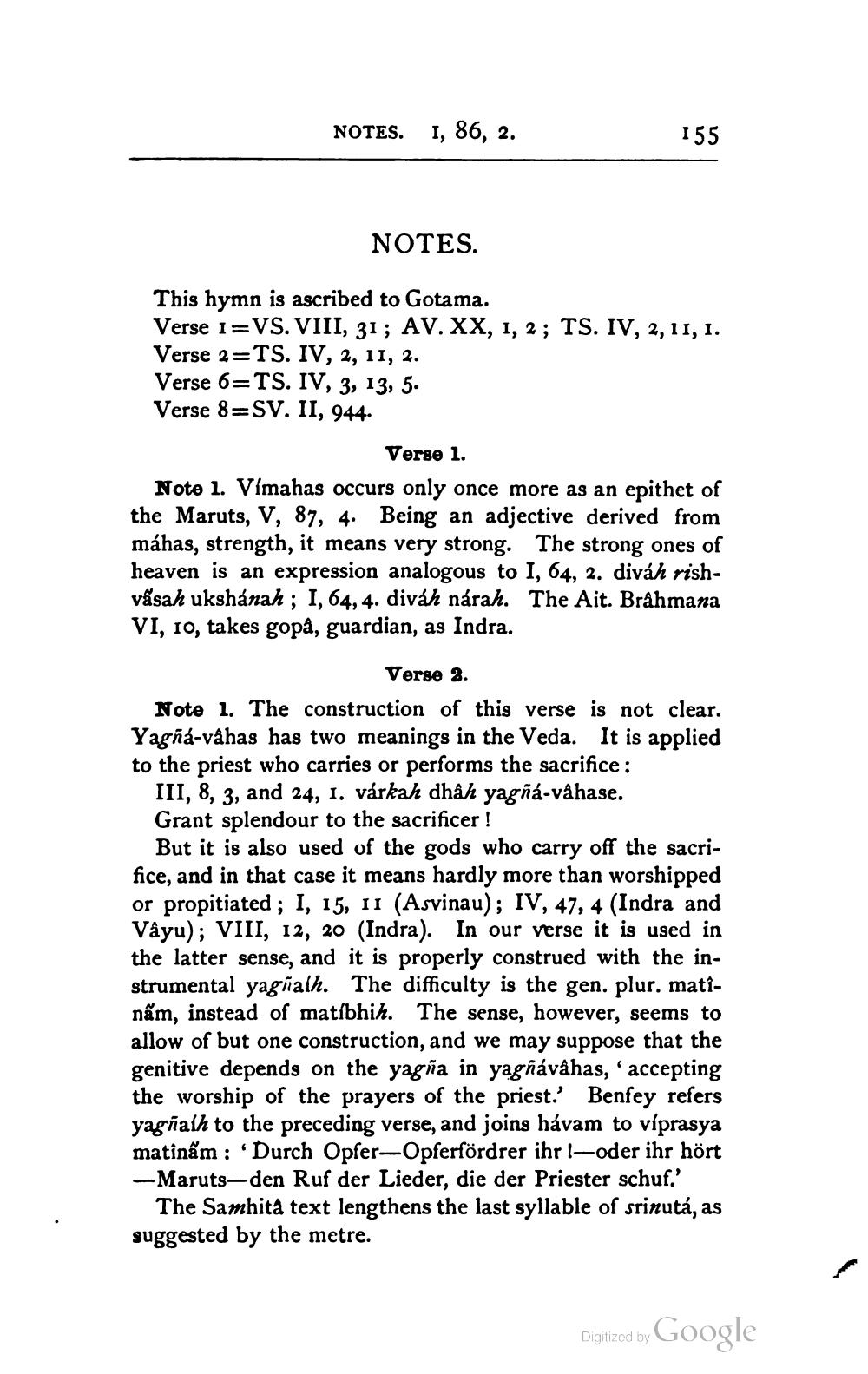________________
NOTES. 1, 86, 2.
155
155
NOTES.
This hymn is ascribed to Gotama. Verse 1=VS. VIII, 31; AV. XX, 1, 2 ; TS. IV, 2, 11, 1. Verse 2=TS. IV, 2, 11, 2. Verse 6=TS. IV, 3, 13, 5. Verse 8=SV. II, 944.
Verse 1. Note 1. Vimahas occurs only once more as an epithet of the Maruts, V, 87, 4. Being an adjective derived from máhas, strength, it means very strong. The strong ones of heaven is an expression analogous to I, 64, 2. diváh rishvấsah ukshanah ; I, 64, 4. diváh nárah. The Ait. Brahmana VI, 10, takes gopa, guardian, as Indra.
Verse 2. Note 1. The construction of this verse is not clear. Yagña-váhas has two meanings in the Veda. It is applied to the priest who carries or performs the sacrifice:
III, 8, 3, and 24, 1. várkah dhân yagña-váhase. Grant splendour to the sacrificer!
But it is also used of the gods who carry off the sacrifice, and in that case it means hardly more than worshipped or propitiated; I, 15, 11 (Asvinau); IV, 47, 4 (Indra and Vayu); VIII, 12, 20 (Indra). In our verse it is used in the latter sense, and it is properly construed with the instrumental yagnalh. The difficulty is the gen. plur. matinãm, instead of matíbhih. The sense, however, seems to allow of but one construction, and we may suppose that the genitive depends on the yagña in yagñáváhas, 'accepting the worship of the prayers of the priest.' Benfey refers yagñath to the preceding verse, and joins hávam to víprasya matỉnãm : Durch Opfer-Opferfördrer ihr 1-oder ihr hört -Maruts-den Ruf der Lieder, die der Priester schuf.'
The Samhita text lengthens the last syllable of srinuta, as suggested by the metre.
Digitized by
Digized by Google




